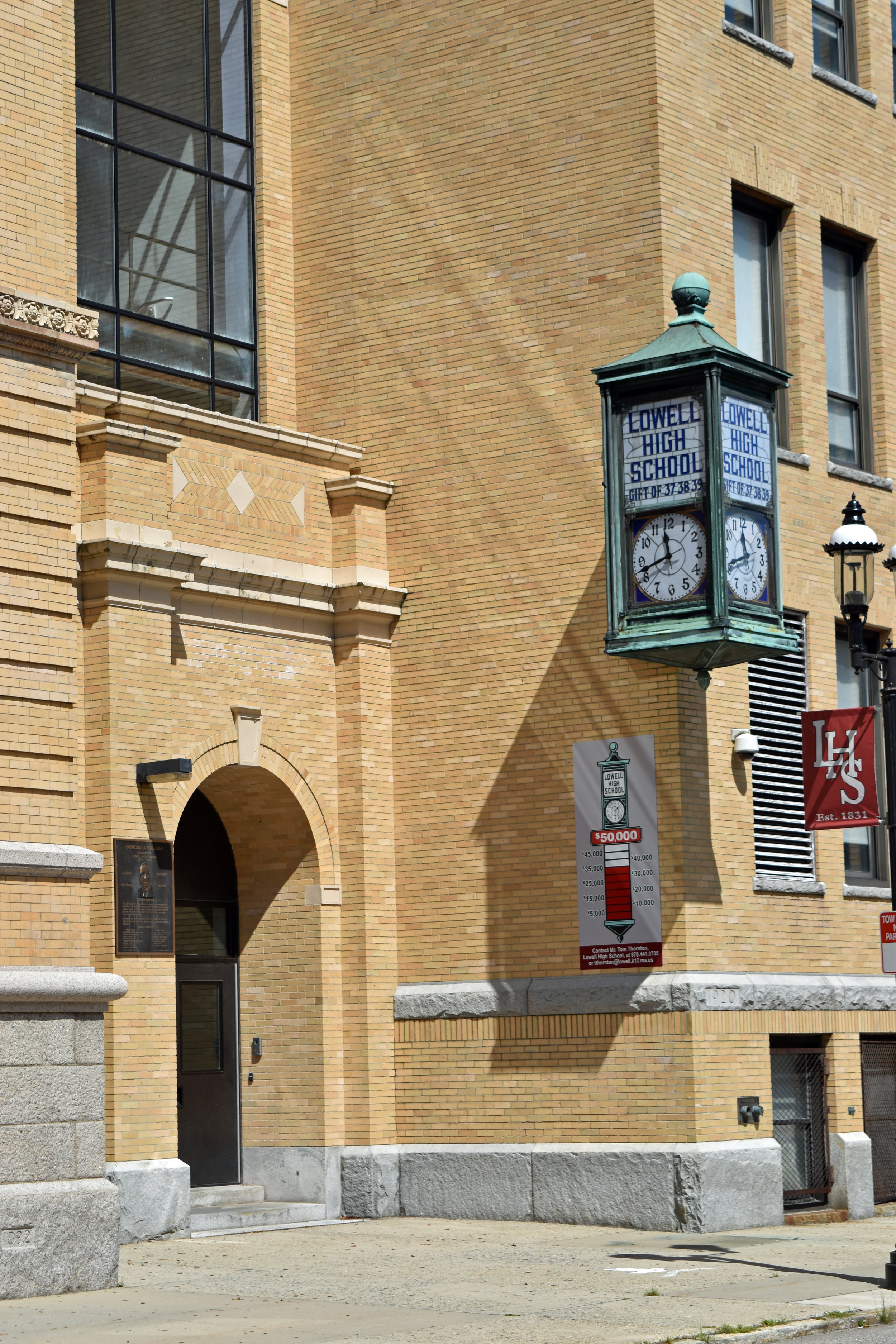School Committee Meeting: Wednesday, January 20, 2016All members present. Twenty-seven items were posted on this agenda which included an Executive Session to discuss contract negotiations and consideration of contract extensions for two Assistant Superintendents. Although most of the meeting was routine, there were two points that caused longer discussion: STEM at Lowell High and a move to use the PARCC test this Spring.There appeared to be a glitch posting the packet and agenda on the LPS website for this meeting as it did not appear on the School Committee website until a day before the meeting. While this was resolved in time for the meeting, there is interest from the community in the agenda; it would be beneficial to also see the agenda in time for people to consider the issues being discussed. By also publishing minutes for the Subcommittees, more citizens who are interested in the Lowell School System can better understand the issues facing the schools and understand and even contribute meanfully to the decision-making process.
Twenty-seven items were posted on this agenda which included an Executive Session to discuss contract negotiations and consideration of contract extensions for two Assistant Superintendents. Although most of the meeting was routine, there were two points that caused longer discussion: STEM at Lowell High and a move to use the PARCC test this Spring.There appeared to be a glitch posting the packet and agenda on the LPS website for this meeting as it did not appear on the School Committee website until a day before the meeting. While this was resolved in time for the meeting, there is interest from the community in the agenda; it would be beneficial to also see the agenda in time for people to consider the issues being discussed. By also publishing minutes for the Subcommittees, more citizens who are interested in the Lowell School System can better understand the issues facing the schools and understand and even contribute meanfully to the decision-making process.
Unfinished Business
The Establishment of Subcommittees and the members assigned to each committee was approved without discussion at tonight’s meeting.The packet posted on the City of Lowell website and on the LPS School Committee page did not include this information. The Subcommittee webpage has not be updated since last year. So, at this point, the subcommittee member assignments are unknown.
Motions
Agenda Item 10 (2016/12) made by Connie Martin formally invited the administration and students from Generation Citizen who presented their findings regarding Financial Literacy courses to the Curriculum Subcommittee meeting for further discussion of such a program. This action was a follow-up to last school committee meeting when the LHS group made a presentation of their project to the whole committee.Agenda Item 13 (2016/13) made by Ms. Martin requested the Superintendent develop a comprehensive plan to restructure the district and accommodate the imminent increases in student population. This motion is very loosely tied to the request for modular classrooms for the Wang School (see Reports of the Superintendent).Agenda Item 14 (2016/29) made by Mayor Kennedy requests the administration establish a STEM (Science, Technology, Engineering, Math) curriculum at Lowell High and received more in-depth discussion. Mr. Kennedy reminds the committee that he initiated this requests last year from the City Council; the motion was referred to Subcommittee. The Mayor feels that such a curriculum will make Lowell and LPS more attractive to parents and students and cites US News & World Report ranking of STEM High School programs; Massachusetts has 15 recognized programs, Lexington High School being one of them. A suggestion that Lexington’s program might provide Lowell with at least a starting point. One suggestion was to structure STEM at the High School similar to the Latin Lyceum.Mayor Kennedy feels referring this back to Curriculum Subcommittee will only cause implementation of the program, something he would like to see start in September 2016, to be delayed. There had been some discussion with Headmaster Martin who compared a STEM curriculum to what is already in place. That programs is referred to as Pathways. Quoting from the Lowell High website:
Our Pathway Programs provide opportunities for all students and their different abilities, interests and talents. Whether a student is planning to work immediately after high school, or will continue learning by attending a training program, a technical institute, a college or university, there are courses in our Pathway Programs that are right for every student.
Link here for more information.In further discussion, Mr. Hoey would like to hear from Mr. Martin that implementing a STEM program is feasible. Mr. Gendron would also like to hear from the Headmaster; however he notes that STEM is already part of the district and wonders about the transition from Middle School STEM programs. In the end, the committee votes to support the original motion that directs the LPS to begin development of a STEM program.My understanding of the Lyceum is that students must apply to participate in this four-year program or Pathway (we used to call this a “track”). This would be a question for the Committee - is the envisioned STEM High School program going to be for students who apply, or is it a choice in the track of coursework? What would be the expectation or end-result of a student successfully completing the four year course of study? Parents will want to keep an eye on this as an opportunity for their students.
Reports of the Superintendent
- Knowledge Bowl update: dates to note are March 7 - March 24, 2016.
- Quarterly Financials: Amounts spent are consistent with previous years. Some amount encumbered to anticipate spending through rest of fiscal year.
- Transportation is running a deficit ancitipated to be $179,000 (attributed to increase in transportation needs of SpED students);
- Insurance account anticipated to have $300,000 shortfall (attributed to employee insurance status changes)
- Grant funds - 8 new grants since last report resulting in an increase of funding close to $400,000
- Revolving Account (milk/lunch) has about $2.8 million in account. Ms. Martin inquires about refunds due to parents who had prepaid lunch accounts prior to the free lunch program starting. Those amounts are still due parents, but as reported previously, this presents a logistical problem for City accounting. Mr. Antonelli is working with City to get refunds to parents.
- Modular Classrooms: As a response to the population bubble anticipated for the Middle Schools in 2016, the District is requesting 2 modular classrooms to be installed at the Wang Middle School. Each classroom ($36,000) plus anticipated design (approximately $10,000) needed as the Wang has no room for additional students. Other middle schools throughout the city will also be taking in students of course (anticipated additional students anicipated for 2016-17 school year alone are 200 plus), but have some way to accommodate them. Students are assigned to Middle Schools from Grade 4 according to Zones, so that the population increase will be felt by all Middle Schools, not just the Wang. By requesting modulars for this year only, the Superintendent will have some time to look at a more comprehensive way to accommodate increasing Middle School student populations, anticipated to continue for the next 4 years.
I’m making an assumption/interpretation that the other schools have some ability to include more students with some scheduling or repurposed classrooms. For example, at the Lincoln School, there are 5, not 4 Fourth Grade classrooms this year accommodating an increased bubble class that has been making its way through the Lincoln School since Kindergarten. The “extra” classroom was originally a faculty meeting space; and had several other purposes since the building was constructed; once the bubble class “graduates”, a new program will be housed in that classroom space.
- Project LEARN and Grant Updates. District continues to work in partnership with UML and MCC. Project LEARN has been very active thus far in helping schools to raise funds.
- Personnel Report accepted as a report of progress.
New Business
Item 18 (2016/31) requested permission to post the position of Part-Time Office of Accountability Developer. The funding for this position is available through the end of the fiscal year (June 2016) using Title I funds. There is a lot of confusion about what funds are available for (student programs?, teaching staff?, consultants?); Dr. Khelfaoui is looking for someone with experience in Accountability to assist with rolling the currently organized accountability endeavors into the new strategic plan. Passes 6 to 1 (Ms. Martin votes no). Request for an organizational chart to help Committee Members understand realignment of duties and responsibilities.After approving the request to post Accountability Developer and a transfer of funds to Teacher Academy, the big ticket discussion came up: Adoption of PARCC test for this spring (Agenda Item 2016/36). Superintendent Khelfaoui is requesting that the School Committee, which had previously rejected PARCC test in October 2015, now approve administration of PARCC in the Spring. Originally against using the PARCC test in Lowell, but now making the request to move to PARCC, Dr. Kehlfaoui cited the following:
- While the online test administration for the pilot program in Lowell was disasterous (expensive, infrastructure demands), Commissioner Chester now allows that test can be administered in pencil/paper format. The Commissioner had visited Lowell on January 6, 2016.
- Although we have great schools (shout-out to Bartlett for attaining Level 1 status), some schools are at Level 3 and preciptiously close to Level 4 even though the teachers are working hard to prevent this. Just one Level 4 school means the entire district will be designated Level 4; negating the extraordinary good work of schools at Levels 1 and 2 as well as any progress being made by Level 3 schools. It also will mean that, as a Level 4 District, there will be consequences impacting how the schools are managed (see the Commonwealth’s takeover of Lawrence and Springfield as examples).
- Commissioner Chester has offered that any Massachusetts school district using PARCC this year will be held harmless. Meaning that test scores that go up will count toward moving a district UP, test scores that go down will not impact the school by moving it toward a lower level or designation. Note that while the school district is going to enjoy this breather, teachers may or may not - test scores are under discussion for consideration in teacher evaluation.
Mr. Gignac opened discussion by expressing concerns about PARCC and the lack of information available in the packet. He expresses his concern that there has been virtually no discussion or public input, and that there is pressure to make the decision (PARCC or MCAS) now. Mr. Gignac learned that some accommodations for IEPs are still disallowed. He has also discovered each test is to be completed within a specified amount of time where MCAS was not. Mr. Gignac says our students deserve the best education NOW; does holding the results harmless negate thorough analysis of data? He is puzzled that the deadline for making the decision to test using PARCC has passed, yet the School Committee is being asked to approve PARCC use tonight.Discussion continued with school building administrators expressing that PARCC was enthusiastically being embraced by their building teachers. Jennifer McCrystal had spoken with DESE (Department of Elementary and Secondary Education) to clarify the use of accommodations that were previously available in MCAS, and she had answers to many questions. Ms. McCrystal has committed to explaining this fully to interested parents and anyone else at the upcoming SpED Parent Advisory Meeting.Paul Schlictman spoke about test from his vantage point as a district administrator and school committee member (Arlington). As the pool of schools taking MCAS shrinks, if Lowell continued to administer MCAS this school year, the probability of more Level 4 designated schools will likely increase (fewer schools taking MCAS will mean that Lowell Schools will be compared to a small subset of Massachusetts schools which increases the odds that any struggling school may find themselves with a Level 4 status). Ms. Abrams, Assistant Superintendent for Curriculum and Instruction, states that while MCAS had served us well over nearly 20 years, students are ready for the rigors of PARCC because teachers teach to standards not to test.Paul Georges, UTL president, spoke about the Union’s objection to all high-stakes tests and the punitive nature of tests like PARCC. While understanding that this is a difficult choice, he states that tests like this are punitive. State Commissioner of Education Mitchell Chester has recently been quietly removed as PARCC Board chair (link) and seems to have a ulterior motive in pushing PARCC. Corporations standing to make money on the change (Pearson Education) are pushing out this test and the high-stakes test agenda with little or no regard to expertise of educators.Mr. Gendron says adopting PARCC, especially since the online requirement is removed, will buy time to find out about resources. (The Commonwealth is only offering E-rate which pays for infrastructure and not for hardware) Mr. Hoey echoes the sentiment that testing is punitive and states that having been on the School Committee when MCAS testing first began, he feels that children are being damaged by testing. Connie Martin also expresses reservations; however, will support adoption of PARCC as it appears as the District’s “only choice”. She is not enthusiastic.In the end, the move toward PARCC was approved 5 yes, 2 no (Mr. Gignac and Mr. Hoey).As this is mainly a report, I have tried to restrict my commentary in this post. However, it is clear to see that this is a decision that will cause our students - all of them, a great deal of stress. It is also clear that the PARCC issue really puts our school system in a difficult position. The Commissioner of Education's recent visit to Lowell seems to indicate that he has put Lowell in his sites. Readers may recall that during his recent visit with the Murkland School, on one hand he was complimentary about their phenomenal success and with his next breath advocated a move toward PARCC and “encouraged the district to re-think its decision to stick with the MCAS state test this spring." Amelia Pak-Harvey's story covering this visit can be found here.I have many concerns about the PARCC test, or any high stakes tests actually, and our students, primarily English Language Learners (30% first language not English, 25% English language learners in district from Massachusetts DESE website). After having looked at the PARCC consortium and the web-based test samples for the last 3 years. I have concerns about this test when states that used to be part of the PARCC consortium leave it, sometimes after administering the test one time (Washington Post).I have concerns when I hear that there are set limits on the amount of time for each subtest. I have reservation that fitting 7-8 test periods into a short test window (April 25-May 27 per DESE) will lead to test fatigue, students who are exhausted from days of testing. I am relieved that paper-and-pencil versions will be used as the technology layer is one many of our students are not yet ready to conquer. I appreciate that the English Language Arts test does not take place in early March as testing children on one years’s growth at the seven month point in a school year, as MCAS did, seems to be set up for failure.I have a concern when a PARCC Executive Board member appears to be applying the hard-sell with school districts across the state (not just Lowell as it turns out) by making deals that ignore passed deadlines. That alone makes me wonder what the ulterior motive might be. We have recently learned Mr. Chester lost his chairmanship of the PARCC board. He is still a member of the PARCC Executive Board, however, and that, in my opinion is a conflict of interest concerning objectivity and this test.Pragmatically, I understand the rock and hard place that caused the PARCC vote to pass. No one wants the specter of a Level 4 designation and the consequences that could accompany it (demoralization of staff, loss of local control, installation of school overseers) and by taking the “deal” (that being the incentive to not hold scores against the District) the LPS can avoid that. Reading between lines - what was said and left unsaid - there was little choice for the Committee. What is unavoidable is that our students will be put through the wringer with a new assessment that may or may not provide useful curricular data, no performance data, and may still be used as a tool for teacher evaluation.I plan to write about this in depth over the weekend from the perspective of a teacher who was in the midst of high-stakes testing in a lower performing school. {Edited to include link 23 January 2016}Executive SessionThe committee ended the public portion of the meeting and went into Executive Session for the contract, litigation updates and to consider extensions of contracts to the Assistant Superintendents.The link to the meeting packet can be found here.
 Mitchell Chester is the current Commissioner of Education in Massachusetts. Think of that as a district superintendency, but on a state level. He was unanimously selected to be Massachusetts Commissioner of Education in 2008, following a 7-year stint in Ohio as Senior Associate Superintendent for Policy and Accountability in Ohio's Department of Education. His career path began as an elementary teacher in Connecticut and progressed through various administrative positions at school, district, and state levels. All of which makes for an impressive resume.However, here is where I think Dr. Chester has gone off the rails: PARCC.Mitchell Chester currently serves on the PARCC governing board. Up until November 2015 when he was quietly replaced by the Governing Board Member from New Mexico (Hanna Skandera), he was the Chair of this group whose responsibilities include the following, to quote PARCC.org website:
Mitchell Chester is the current Commissioner of Education in Massachusetts. Think of that as a district superintendency, but on a state level. He was unanimously selected to be Massachusetts Commissioner of Education in 2008, following a 7-year stint in Ohio as Senior Associate Superintendent for Policy and Accountability in Ohio's Department of Education. His career path began as an elementary teacher in Connecticut and progressed through various administrative positions at school, district, and state levels. All of which makes for an impressive resume.However, here is where I think Dr. Chester has gone off the rails: PARCC.Mitchell Chester currently serves on the PARCC governing board. Up until November 2015 when he was quietly replaced by the Governing Board Member from New Mexico (Hanna Skandera), he was the Chair of this group whose responsibilities include the following, to quote PARCC.org website:
 Twenty-seven items were posted on this agenda which included an Executive Session to discuss contract negotiations and consideration of contract extensions for two Assistant Superintendents. Although most of the meeting was routine, there were two points that caused longer discussion: STEM at Lowell High and a move to use the PARCC test this Spring.There appeared to be a glitch posting the packet and agenda on the LPS website for this meeting as it did not appear on the School Committee website until a day before the meeting. While this was resolved in time for the meeting, there is interest from the community in the agenda; it would be beneficial to also see the agenda in time for people to consider the issues being discussed. By also publishing minutes for the Subcommittees, more citizens who are interested in the Lowell School System can better understand the issues facing the schools and understand and even contribute meanfully to the decision-making process.
Twenty-seven items were posted on this agenda which included an Executive Session to discuss contract negotiations and consideration of contract extensions for two Assistant Superintendents. Although most of the meeting was routine, there were two points that caused longer discussion: STEM at Lowell High and a move to use the PARCC test this Spring.There appeared to be a glitch posting the packet and agenda on the LPS website for this meeting as it did not appear on the School Committee website until a day before the meeting. While this was resolved in time for the meeting, there is interest from the community in the agenda; it would be beneficial to also see the agenda in time for people to consider the issues being discussed. By also publishing minutes for the Subcommittees, more citizens who are interested in the Lowell School System can better understand the issues facing the schools and understand and even contribute meanfully to the decision-making process.


